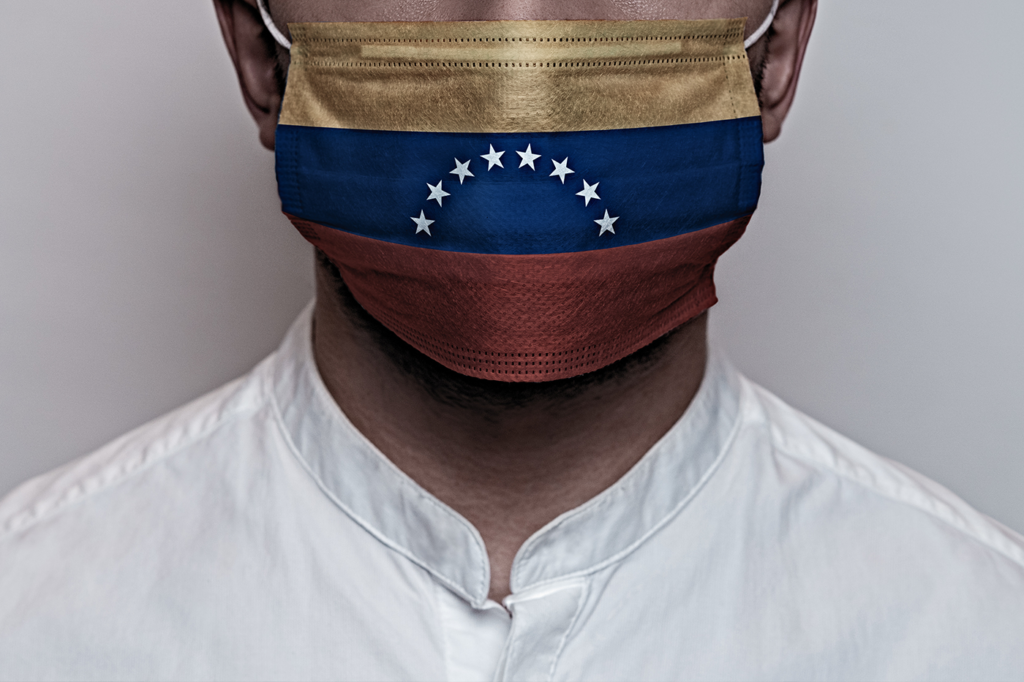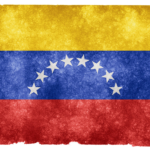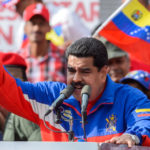The social repercussions of the COVID-19 crisis are alarming. This virus is not just producing dramatic consequences for the economy and health of our nations: it is also becoming the most important political agent of 2020.
Authoritarian regimes across the globe are seizing this opportunity to strengthen their political and economic hegemony within and beyond their borders. In a world where entire populations are frightened at the consequences of the virus, where the international community is only concerned with stopping the pandemic, and where our major economies are in induced comas and on the verge of recessions, these regimes are likely to succeed in amassing ever more power.
Therefore, in Venezuela, the COVID-19 crisis is far from debilitating the Maduro regime, as some journalists have suggested. On the contrary, the crisis is allowing the Maduro regime to increase its authoritarian grip over the Venezuelan people. The Maduro regime is using the COVID-19 crisis as an excuse to strengthen its control over its citizens, debilitate civil society, and increase its political legitimacy both within and outside the country. The regime is spreading misinformation to attack its political enemies, including the United States. It has been jailing independent journalists reporting on Venezuela’s lack of healthcare preparation and Maduro’s lies. And it has been threatening businesses and inducing fear in the Venezuelan people.
An Authoritarian Dream: The COVID-19 Crisis in Venezuela
Start your day with Public Discourse
Sign up and get our daily essays sent straight to your inbox.Venezuela is a country where the COVID-19 crisis could become a humanitarian tragedy. Without a functioning healthcare system, and in the middle of an economic collapse, we Venezuelans feel completely vulnerable to the ravages of COVID-19. According to the Global Health Security Index, Venezuela ranks 176th out of 195 nations in terms of its preparedness for an epidemic. Nationwide, we only have about 80 critical-care beds for a population of over 28 million. Half of our 306 hospitals not only lack access to water and electricity but also lack face masks or other basic equipment to combat the COVID-19 crisis.
Because of this critical situation, some people genuinely (and naively) thought that the COVID-19 crisis could result in a political ceasefire. Perhaps, they hoped, both the opposition and the regime might acknowledge the magnitude of the crisis and work together to protect all Venezuelans from the physical, psychological, and economic consequences of a potential pandemic.
Unfortunately, such a solution is impossible in today’s Venezuela. Instead of fostering cooperation, the regime is using the COVID-19 crisis as a weapon to strengthen its power. Since day one, the Maduro regime has implemented the most restrictive type of quarantine. Across the country, it deployed the army and security forces to the streets, it explicitly prohibited all Venezuelans from traveling on the streets, and all businesses were shut down. And while some of these measures are understandable in certain cases, and for a short period of time, the measures will continue even after the COVID-19 crisis is over.
The regime calls the future, post-COVID-19 period Venezuela’s new “relative and monitored normality.” This new way of living will keep people isolated, confined to their homes, and scared about their health. It will keep the military on the streets, monitoring the population’s every move. The regime will keep threatening independent journalists covering the humanitarian crisis that is currently unfolding in Venezuela, arguing that they are inducing fear and spreading lies. Ultimately, the regime will keep the country paralyzed, with a poorer and less free civil society. By all accounts, this is an ideal scenario in which to maintain an authoritarian regime. The COVID-19 crisis has become a dictator’s dream.
Maduro is also using media outlets to increase uncertainty and paranoia among Venezuelans. For weeks, the Maduro regime has been systematically spreading lies about the origin and consequences of the virus. Among the regime’s lies is that the United States is behind the transmission of the virus. They argue that the virus is an American attempt to attack anti-imperialist nations, such as Venezuela, Iran, and China.
In a similar fashion, Maduro has also been blaming other Latin American presidents for allegedly supporting the United States in its imperial mission. According to Maduro, Colombian President Ivan Duque and Brazilian President Jair Bolsonaro are the ones we should blame for helping the United States to spread the virus in Latin America and Venezuela.
The Maduro regime is also using the COVID-19 crisis to excuse its own incompetence. For over a year, Venezuelans have been experiencing a new consequence of the economic collapse: fuel shortages. This began as an unusual problem, but it gradually became a systematic one. Currently, there is virtually no gasoline in Venezuela, as every refinery in our nation is closed due to Maduro’s mismanagement of the oil industry.
Venezuela, therefore, became the first oil-rich nation without fuel. And the Maduro regime, instead of admitting its incompetence, did what it always does: it blamed someone else. In this case, it didn’t have to blame the opposition; it just blamed the virus. The regime argued that because of the quarantine, no one should be driving; therefore, no one should have access to fuel.
So, right now, Venezuelans who want fuel have to pay exorbitant prices on the black market. This means that fuel has become inaccessible for the overwhelming majority of Venezuelans. This situation is likely to continue for a long time, and—due to the quarantine—Venezuelans will not even be able to protest the situation.
Moreover, the regime is using the COVID-19 crisis to build ill will against multilateral organizations. It asked the Inter-American Development Bank (IDB) for a five-billion-dollar loan. When the IDB (predictably) declined the petition, the regime blamed it for politicizing a health crisis. These multilateral organizations know that the regime will use these funds to pay off crooks, not to combat the COVID-19 crisis.
The Maduro regime is also using the pandemic as the basis to advocate the removal of the financial sanctions that the United States and the European Union imposed on Venezuela. Maduro argues that such sanctions will block Venezuela from buying the necessary equipment to combat COVID-19. This is a tactic that other authoritarian nations, such as Iran, are also using.
However, like the loan request, this is just a ruse. For Venezuelans, there is no worse “sanction” than being governed by a regime like Maduro’s. In recent years, thousands of Venezuelans died due to Venezuela’s gutted healthcare system, the nation’s chronic shortage of medicines, and the Venezuelan economic collapse.
Overall, the COVID-19 crisis is every dictator’s dream. It has paralyzed not only civil society but also politics. People are not talking about politics any more. Politicians cannot call for public demonstrations. And with the international community and international media focused on the virus, the world is rapidly forgetting about countries like Venezuela. As a result, we Venezuelans feel lonelier than ever. We feel that our window of opportunity to achieve a regime change is closing. We feel that we are completely vulnerable to the economic and health consequences of the virus. And on top of this, we don’t know how much longer this is going to last. As a result, COVID-19 is rapidly becoming this year’s most powerful political agent in Venezuela, and Maduro’s best ally.
The COVID-19 crisis is once again showing Venezuelans that crises do not topple authoritarian regimes. In Venezuela, due to our democratic past, most people believe that crises produce better-governed nations. I have been hearing for years that our humanitarian crisis will produce a political change. I am told that these types of situations upset people and make them protest even more; that crises allow people to understand the negative effects of certain policies or leaders; and that, ultimately, the Maduro regime will collapse due to its own incompetence.
Sadly, history shows that politics does not work that way—at least not in authoritarian nations. Within the logic of authoritarian regimes, crises do not produce political change. When countries experience crises, civil society weakens. Crises impoverish people, making them more dependent on the state, more vulnerable, and less optimistic about the future. Crises help authoritarian leaders to maintain power. Therefore, as much as I would like to believe that the COVID-19 crisis will produce a future in which evidence-based policies triumph over other forms of governance, the sad reality is that the COVID-19 crisis will leave us with a much more authoritarian Venezuela.


















